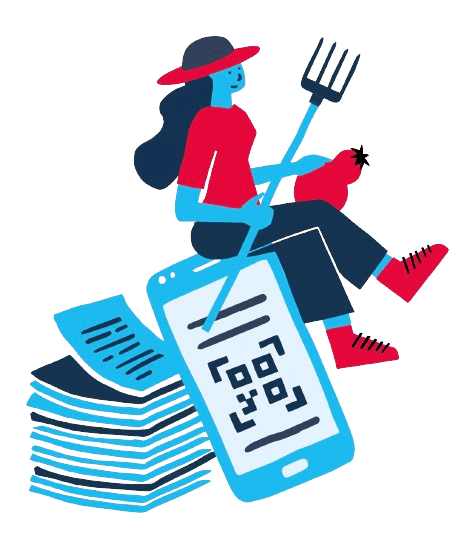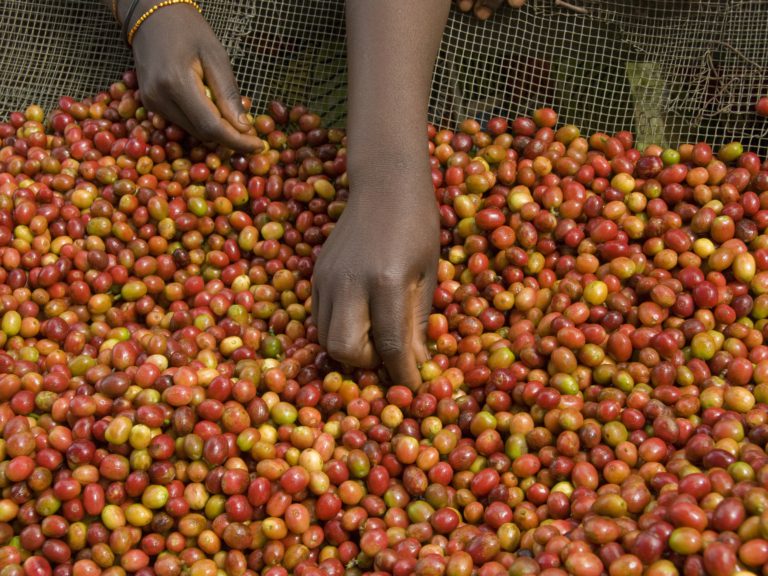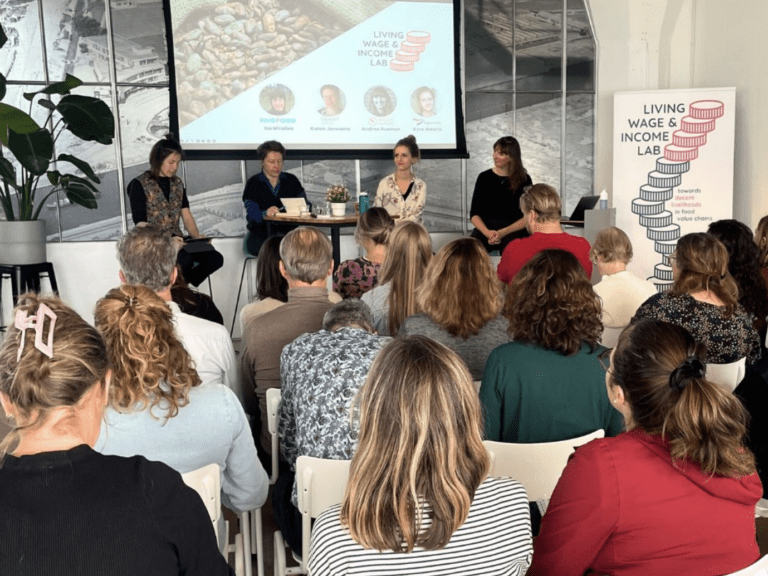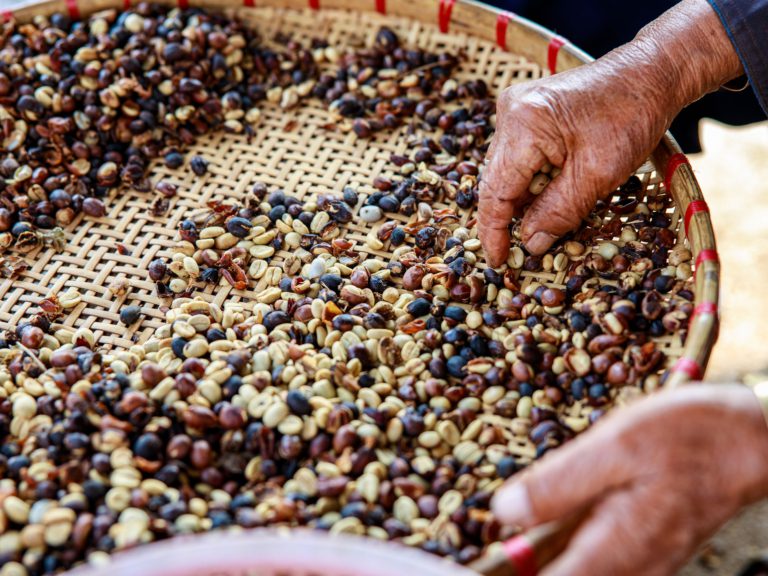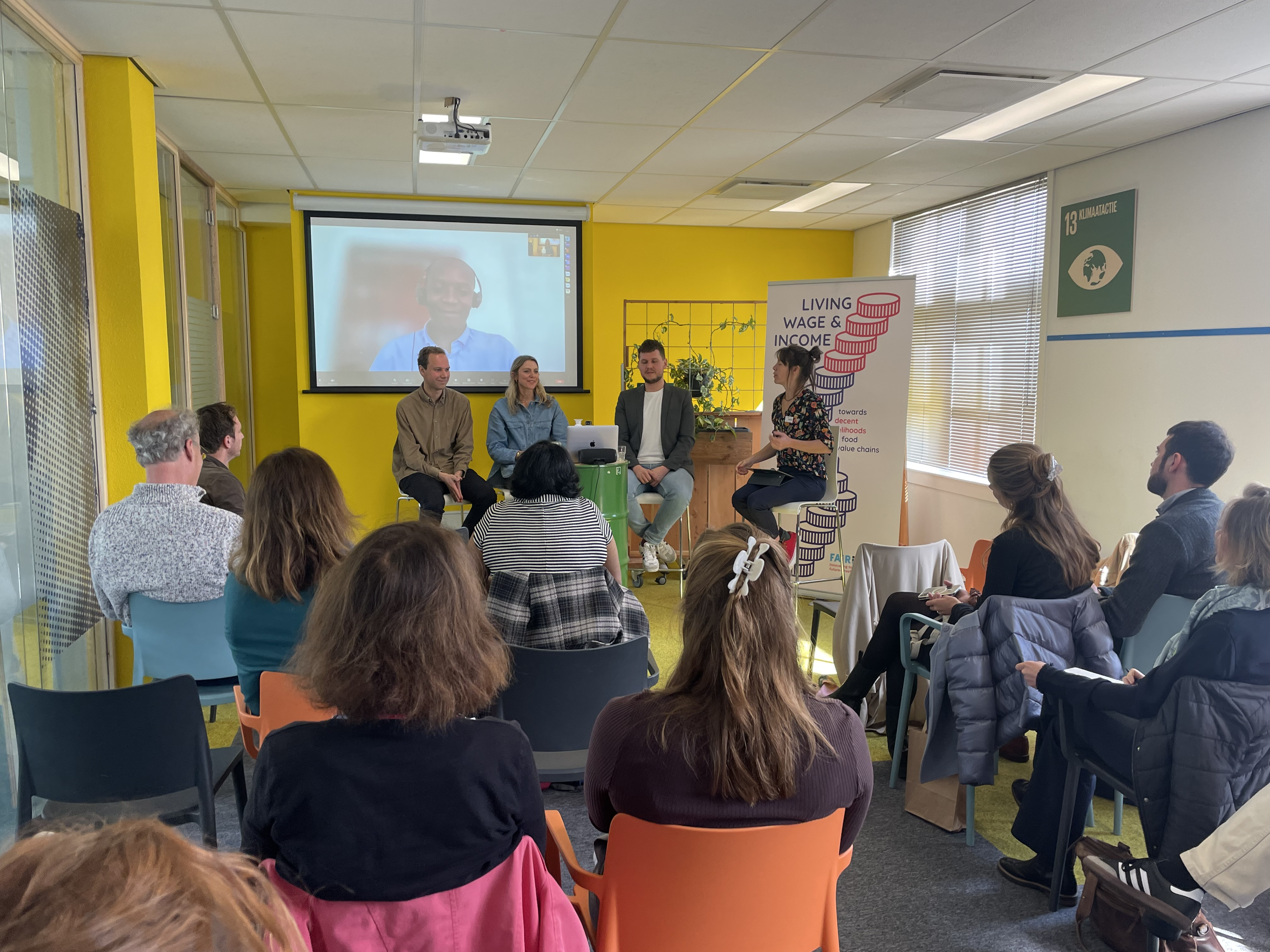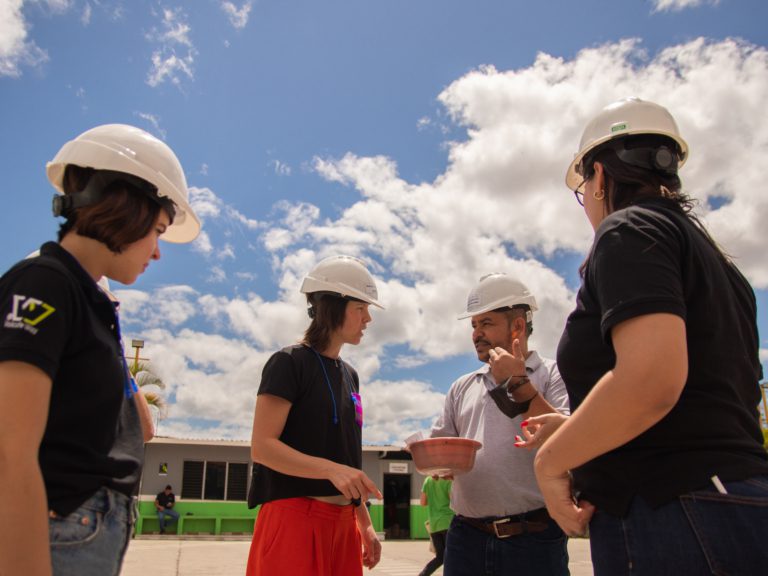In this chapter, we’ll highlight the partnerships that made the biggest impact in 2023.
Traceable nutmeg and ‘agroforestry pepper’ with Verstegen
First, some facts, stats and highlights:
All Dutch supermarkets now sell Verstegen’s fully traceable nutmeg
We saw an increase in farmers’ net incomes from nutmeg of around 5%
‘changemakers’ were hired and trained in agroforestry practices
Who, in turn, trained
farmers in agroforestry practices
The partnership that Verstegen Spices & Sauces and Fairfood formed in 2018, came to an incredible result in 2023: all Dutch supermarkets now sell Verstegen’s traceable nutmeg. That means anyone can track the journey of Verstegen’s nutmeg and discover who the farmers are that put in the hard work.
A little something extra about this thrilling project: using our Trace platform, we were able to make Verstegen’s nutmeg fully traceable by registering all transactions along the supply chain, making the products’ journey transparent from farm to fork. All smallholders have been provided with a so-called Farmer Card, which allows them to verify the transactions and (premium) payments they received (more on those premiums later), even if they don’t have access to a phone or Internet connection. This way, we can be sure that farmers received their payments.
To boost farmer participation in this pilot project, we introduced quality and data premiums. While quality premiums encourage farmers to collect higher quality nutmeg, data premiums are an additional payment that Verstegen offers smallholders in exchange for sharing their data on our Trace platform. With almost 400 farmer cards issued so far, these added Quality and Data Premiums have resulted in an increase in farmer net incomes from nutmeg of around 5%. By prioritising farmers’ agency and autonomy over their data, the project also improved trust in data sharing.
As the work on nutmeg continues, Verstegen and Fairfood (with support of GIZ) also embarked on a new mission: supporting Indonesian pepper farmers to switch to agroforestry practices. Agroforestry allows farmers to combine different types of plant species that serve different purposes – from food production and additional sources of income, to conservation and soil improvement by optimising available space, sunlight and water to gradually increase soil and plant health, and plant productivity (read more on that here). So far, 10 so-called ‘changemakers’ have been hired in Indonesia, each with an educational background in agriculture. They received additional training in agroforestry, which they are now passing along to the pepper farmers. To be continued in 2024!
If you can’t get enough of our work with Verstegen Spices & Sauces, check out the elaborate case study that was done by USAID, the Bill & Melinda Gates Foundation and others!
“I want to learn how to care for pepper plants so they don’t turn yellow. I want to know the cure for pepper disease… Look for methods to get good pepper. Like the pepper on the demo plot in Namang. I said to my child, ‘that pepper is really good.” Pepper farmer Sapauni about partaking in the aGROWforests project and the demo plot that is a part of this project
A margin redistribution strategy for Dole Europe B.V.
In partnership with Dole Europe B.V., a multinational fresh produce importer, the local South African cooperative Sundays River Citrus Company (SRCC), and the South African NGO Sundays River Valley Collaborative (SRVC), Fairfood is working towards a more transparent and sustainable citrus supply chain. By tracing lemons back to their origin, Dole Europe B.V. is setting a margin distribution strategy where part of their profit goes to community projects that should lift up the citrus community. This way, they seek to improve the livelihoods of the communities at the base of the lemon supply chain.
SRVC provides the necessary context and helps select the most impactful projects. One project that made the selection is the so-called Travelling Teacher project that increases agricultural skills and knowledge in the community by engaging highly skilled educators to deliver classes across participating schools in the Sundays River Valley.
As Lennart Visser, marketing and sustainability manager at Dole Europe B.V., rightfully put it: “I see a future for doing business where economic success is interlinked with social and ecological success. Commerce and a positive impact need to go hand in hand. This project helps shape our business approach towards social impact, which in the context of the Sundays River Valley is about social uplifting.”
We’ll continue this work in 2024. As we carry on our work in the valley, we aim to scale to other suppliers, products, and countries.
Within the RECLAIM Sustainability! consortium, the added value of transparency rings true
Milestone alert! 2023 marked the year in which the first results of the 5-year programme RECLAIM Sustainability! were felt by Dutch consumers: leveraging our traceability platform, Trace, Fairtrade Original can now easily provide solid proof of the promise that they are paying Ugandan coffee farmers a Living Income Reference Price. This price, validated by Fairtrade International, strengthens their commitment to enabling their suppliers, who are not solely focused on coffee, to earn a living income. Realised together with the union of cooperatives ACPCU and Solidaridad East Africa, this is a stellar example of teamwork with dedicated partners in the field, which is also leading to significant progress in Sierra Leone and Honduras.
Highlights from the Fairtrade Original partnership:
kilograms of coffee was traced
All the way from
Ugandan farmers
In the third year of the 5-year programme, coffee and cocoa partners committed to fully tracing their value chains include traders such as Sucafina in Uganda, Volcafe in Honduras, and Tradin Organic in Sierra Leone. The latter is actually helping realise another milestone: Tradin Organic’s client VGAN Chocolates, a chocolate brand being sold in the US, has committed to paying a 6% price increase to Tradin Organic. Of this price increase, 1% goes to Tradin Organic and Fairfood for their work on transparency and traceability. The other 5% will go directly to the farmers.
As we consider the longevity of our projects, we look forward to two major achievements that will take place in 2024. In Honduras, we found a partner in Heifer International with whom we are developing a living income pricing methodology. Secondly, in partnership with Tradin Organic, we’re developing a Due Diligence Dashboard, which helps you determine the risks of – say – deforestation in Tradin’s supply chain, with a single glance. More on this second partnership below!
First, some reading tips related to this programme:
Navigating new regulations with Tradin Organic
One of the great things that came from the RECLAIM Sustainability! programme is our partnership with Tradin Organic. Continuing our cocoa tracing journey in Sierra Leone, our partnership with this Dutch trader- who happens to be a global leader in organic fresh products – has evolved towards a new commitment: staying ahead of the market when it comes to due diligence. As a key element of this evolution, we are introducing a new tool to Fairfood’s toolbox: the Due Diligence Dashboard.
With the emergence of new regulatory frameworks like the EU Deforestation Regulation and the German Act on Supply Chain Due Diligence, it became evident that while plenty of data is collected in international supply chains for compliance, there’s a lack of appropriate tools to manage, integrate, and view this data. This collaborative initiative aims to empower EU-based companies to conduct thorough due diligence, thereby reducing the likelihood of them avoiding certain production areas. By integrating multiple datasets from diverse sourcing projects, this new dashboard equips clients with a tool to meet their due diligence requirements, fostering transparency and accountability across the supply chain. More about this in 2024!
Farmers profit from companies’ carbon insetting
Can decarbonising agricultural production and the fight against poverty go hand in hand? In 2023, we focused on answering this question together with Solidaridad, Rabobank, Cool Farm Alliance, and &ranj, in a programme made possible by the Dutch Postcode Lottery’s Dreamfund. Our shared vision is to have farmers monetise corporates’ offsetting practices. For the newbies: offsetting means capturing any unavoidable carbon emissions that stem from your business practices, for example by planting trees. Fairfood is taking it a step further, and is looking at insetting – planting those same trees on the farms where your own products are coming from.
Unlike offsetting strategies, insetting keeps investments in carbon reduction within a company’s own value chain, while they support the farmers who produce their products in becoming more climate resilient. Think of it this way: a farm with so-called shade trees and more biodiversity, is better resistant to heat and drought than a farm with just one crop. And in true win-win fashion: companies secure their future supply.
The consortium offers a complete package of tools and services to involve companies and farmers in carbon capture, financing, and trading – the three fronts of joint action to sustainably encourage the reduction and removal of carbon. Fairfood translates these efforts into marketable sustainability claims that companies can use to communicate their carbon work – think: carbon-neutral or net-zero. To get all the details, we recommend you check out this page!
“Insetting is a climate strategy in which companies, in our case agricultural ones, buy carbon credits that originate in the company’s own supply chains. Think of trees planted on the land of a farmer providing coffee to a particular company. Moreover, insetting is about many other activities, like smart agricultural practices, that actually cut carbon emissions.” Our director Sander de Jong in a LinkedIn opinion piece
Supporting smaller players in telling a transparent story
If supporting companies to shift to more sustainable practices is at the heart of what we do, we don’t abandon those who start things differently. For many small and medium companies, transparency is a pillar of their business, but realising digital traceability and translating it into compliance and good communications is something they can do better with Trace.
That’s what we saw with Pure Africa. In 2023, they worked with their two Rwandan suppliers to digitise their data in a way that it can easily flow not only into Trace, but into other compliance systems they must abide by in the future. Initially, Trace was used to verify if premium payments were reaching 320 Rwandan farmers supplying their coffee. A big chunk of our 2023 work involved supporting these producers in digitising their systems, so everything could easily flow into Trace. All stakeholders can now access evidence of a fairer Rwandan coffee. The next step is onboarding their Burundi suppliers into digital traceability and ensuring a Living Income Reference Price is paid to all of them.
This is also used to support the Danish brand Social Vanilla in providing transparency for both vanilla farmers, drying stations, supermarkets and end customers – who can enjoy the sweetness of knowing producers can make a living from this product loved worldwide.
